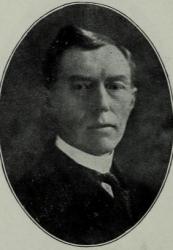Planning worship?
Check out our sister site, ZeteoSearch.org,
for 20+ additional resources related to your search.
- |
User Links
Search Results
[Be with me, Lord, each passing hour]
Appears in 7 hymnals Composer and/or Arranger: Chas. H. Gabriel Hymnal Title: Devotional Songs Incipit: 53431 12165 13525 Used With Text: Teach me to be true
[Be with me, Lord, each passing hour]
Teach Me to Be True
Author: M. Victor Staley Appears in 10 hymnals Hymnal Title: The Finest of the Wheat No. 3 First Line: Be with me, Lord, each passing hour Refrain First Line: Where’er thou bidd’st me go, dear Lord Lyrics: 1 Be with me, Lord, each passing hour,
And make me pure and true;
Teach me to ne’er refuse thy call,
Whate’er thou bidd’st me do.
Refrain:
Where’er thou bidd’st me go, dear Lord,
Whate’er thou bidd’st me do,
Make me obedient to thy will,
And teach me to be true.
2 Thou seest, dear Lord, my path in life;
‘Tis thine to guide the way,
‘Tis mine obedience, Lord, to yield,
And follow day by day. [Refrain]
3 I would not ask to look beyond
The present hour, O Lord,
Enough for me to hold thy hand,
And take thee at thy word. [Refrain]
4 Full well I know thou canst not err,
So I will never fear,
But in the darkest gloom of night,
Still feel thy presence near. [Refrain] Topics: Prayer Used With Tune: [Be with me, Lord, each passing hour]
Teach Me to Be True
Teach me to be true
Author: M. Victor Staley Hymnal: Devotional Songs #13 (1903) Hymnal Title: Devotional Songs First Line: Be with me, Lord, each passing hour Refrain First Line: Where'er thou biddest me go, dear Lord Languages: English Tune Title: [Be with me, Lord, each passing hour]
Teach me to be true
Teach Me to be True
Author: M. Victor Staley Hymnal: Joy and Praise #9 (1908) Hymnal Title: Joy and Praise First Line: Be with me, Lord, each passing hour Refrain First Line: Where'er thou biddest me go, dear Lord Languages: English Tune Title: [Be with me, Lord, each passing hour]
Teach Me to be True
Teach Me to Be True
Author: M. Victor Staley Hymnal: Songs for the Sunday School #17 (1921) Hymnal Title: Songs for the Sunday School First Line: Be with me, Lord, each passing hour Refrain First Line: Where'er thou bidd'st me go, dear Lord Languages: English Tune Title: [Be with me, Lord, each passing hour]
Teach Me to Be True
M. Victor Staley

b. 1866 Hymnal Title: The Finest of the Wheat No. 3 Author of "Teach Me to Be True" in The Finest of the Wheat No. 3 Staley, M. Victor. (near Omro, Wisconsin, 1866--?). Studied at Lawrence University, 1887-1892; University of Wisconsin (Madison), B.A., 1893; Yale University, Ph.D., ca.1895; admitted to bar, 1900. Practiced, Portland, Oregon. Teacher of Latin and Greek, Palo Alto, California; University of Washington, Seattle; Orchard Lake Military Academy and Louisiana State Normal School.
See: Gabriel, Charles H. (1916). Singers and Their Songs. Chicago: The Rodeheaver Company.
--Keith C. Clark, DNAH Archives
M. Victor Staley
Chas. H. Gabriel

1856 - 1932 Hymnal Title: The Finest of the Wheat No. 3 Composer of "[Be with me, Lord, each passing hour]" in The Finest of the Wheat No. 3 Pseudonyms: C. D. Emerson, Charlotte G. Homer, S. B. Jackson, A. W. Lawrence, Jennie Ree
=============
For the first seventeen years of his life Charles Hutchinson Gabriel (b. Wilton, IA, 1856; d. Los Angeles, CA, 1932) lived on an Iowa farm, where friends and neighbors often gathered to sing. Gabriel accompanied them on the family reed organ he had taught himself to play. At the age of sixteen he began teaching singing in schools (following in his father's footsteps) and soon was acclaimed as a fine teacher and composer. He moved to California in 1887 and served as Sunday school music director at the Grace Methodist Church in San Francisco. After moving to Chicago in 1892, Gabriel edited numerous collections of anthems, cantatas, and a large number of songbooks for the Homer Rodeheaver, Hope, and E. O. Excell publishing companies. He composed hundreds of tunes and texts, at times using pseudonyms such as Charlotte G. Homer. The total number of his compositions is estimated at about seven thousand. Gabriel's gospel songs became widely circulated through the Billy Sunday-Homer Rodeheaver urban crusades.
Bert Polman
Chas. H. Gabriel


 My Starred Hymns
My Starred Hymns


